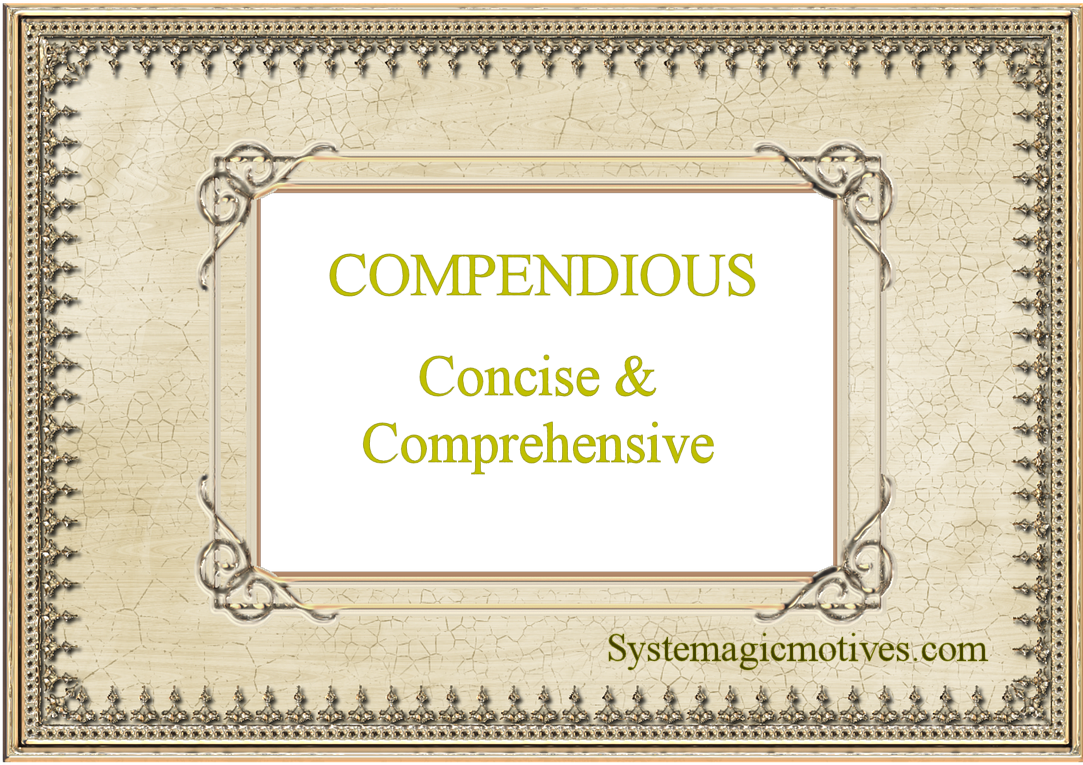

Compendious adj. Concise and comprehensive.
n. Compendiousness
"Sincerity is the most compendious wisdom."
- Lord Chesterfield
The term "compendious" is derived from the Latin word "compendiosus," which means "short" or "economical." It describes something that is concise yet comprehensive, offering a succinct summary or overview of a larger topic while still covering the essential points. A compendious work or description provides a condensed version of information, presenting it in a clear and efficient manner without unnecessary details. This term is often used to refer to summaries, abstracts, or condensed texts that capture the core ideas of more extensive works.
In practice, a compendious text is valued for its ability to distill complex or voluminous information into a more manageable form. For instance, a compendious guide to a subject might provide readers with the key concepts and important details in a streamlined format, making it easier to grasp the essentials without wading through extensive material. This can be especially useful in academic or professional settings where quick access to core information is needed.
The concept of "compendious" is applicable in various fields where brevity and clarity are important. In legal documents, a compendious summary can outline the main points of a case or legislation, facilitating quick understanding. In literature or academia, compendious texts offer a way to convey significant information efficiently. By focusing on the essential elements and avoiding superfluous content, "compendious" materials help streamline communication and enhance comprehension in both educational and practical contexts.
Positive Nouns that Describe People